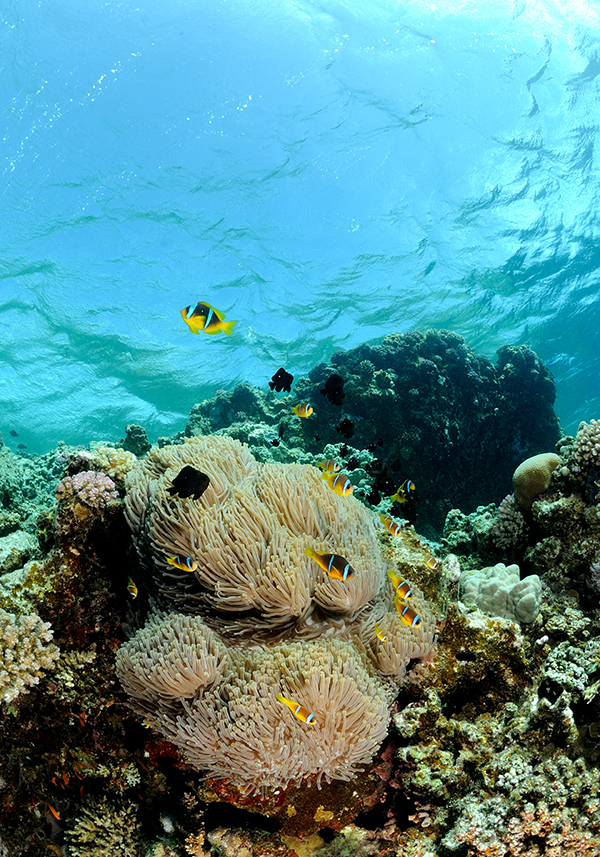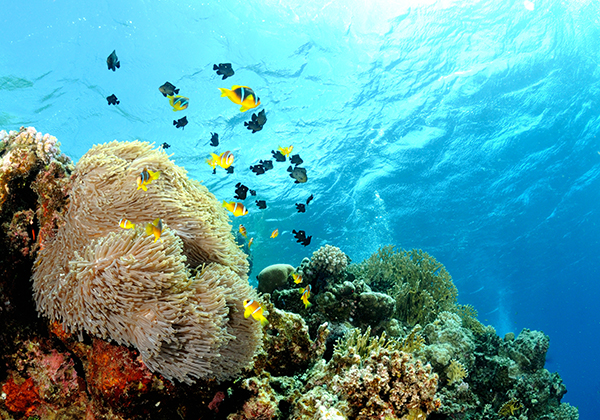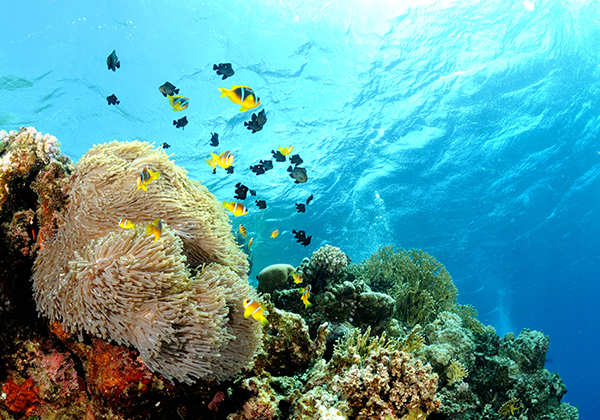I’ve just written a post about my favorite clown, Amphiprion bicinctus. It’s a wonderful fish, attractive and amenable to photographers, though on occasion you find one that knows no fear and will attack a camera or finger. They are, however, nothing without their anemone hosts, so I thought I’d share this video and some images of the best collection of ‘nems and bicinctus I’ve ever seen.
https://www.youtube.com/watch?v=N44XBLLYUm
We all know that anemones spread via splitting in two and the resulting individuals using their muscular attachment discs to move apart. Rarely will ‘nems sit happily against other ‘nems, be they strangers or clones.
In this video I think I’ve found a situation in which currents and topography have caused the anemones to do so well that repeated splitting has meant a wealth of clones have found the conditions to their liking and thus has been created a fantastic Heteractis magnifica ‘garden’.
I would find it fascinating to know more about the relationships between the various individual anemones. Did this whole conglomeration start with one individual, and a series of ‘daughter’ clones moved downwards with gravity, akin to acropora spreading down a slope as damage causes ‘frags’ to fall? It would be easy to think of this as an anemone ‘waterfall’, it fits our terrestrial prejudices after all, but maybe the originating individual had created clones that all moved upwards towards the light and outwards from a central location?

You can really see how the juvenile fish are far more colorful than their older counterparts, and of course a number of juvenile Dascyllus trimaculatus are taking shelter.
In reality, no one will ever know – maybe, given that each animal is competing for resources, none of them are even close to their original positions. Best then to not worry about such things and simply enjoy the spectacle, don’t you think?












0 Comments